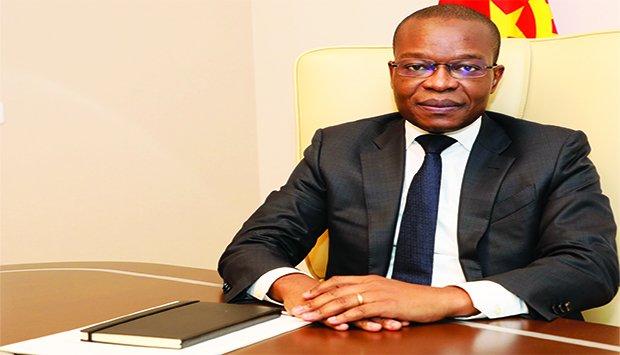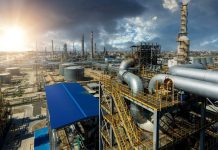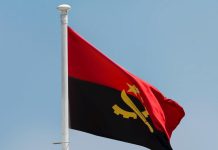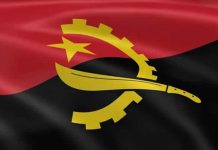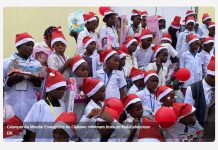Africa-Press – Angola. The current vision of the strategy must point to sustainable, competitive development, investing in the qualification of human resources and in support infrastructures, in the economic use of natural resources, defended yesterday the Minister of State and Chief of Staff of the President of Republic.
Speaking at the opening of the Sea Conference, alluding to the Oceans Week, under the motto “The challenges for the growth of the Blue Economy”, Adão de Almeida stated that the strategic vision aims to achieve the sustainable exploitation of marine resources, contributing to the food supply and for the economic and social development of Angola, based on a mission that aims to promote the development of the sector with a scientific, innovative and solid basis as a way of guaranteeing economic progress and social inclusion through transparent and responsible management.
For the official, the country has a vast ocean with a potential that is still under-explored, but which contributes significantly to the Gross Domestic Product, with the largest percentage coming from the oil industry. He considered that, in addition to the oil and gas industry, the fishing and maritime transport industry are others that have a significant impact on the national economy.
“I particularly salute the Fisheries sector, whose positive performance over the last year has allowed for a significant increase in fish and salt catches, with production increasing to around 198,000 tonnes compared to 164,000 tonnes in 2021” , highlighted Adão de Almeida.
He stressed that the diversity of domains and actors recommends the urgent approval of an Integral Strategy for the Sea in Angola, whose elaboration is in progress, which should include the development of Marine Aquaculture of native Angolan species with great potential for cultivation, in order to improve and increase the availability of fish with an impact on food nutritional security.
Seas and oceans
According to the Minister of State, the sustainability of the seas and oceans depends on a multiple, inclusive, integrated and global approach, in which the various parties involved must create synergies and demonstrate territorial competitiveness, in order to establish balances between exploitation and conservation of the seas and oceans.
“This Conference is extremely important for raising awareness about the sustainable use of the seas and oceans, which requires instruments and actions integrated into the concept of the Blue Economy, based on fundamental premises such as prevention, reduction, reuse, recovery and recycling of materials and energy”, he stressed.
From an economic point of view, he said that the oceans are the basis of several activities, namely Fishing, Mineral and Hydrocarbons Extraction, Transport and Tourism, in a group that is conventionally called the Blue Economy. , while in geopolitics, he added, they (the oceans) still have a role of great importance at the global level, so the political strategies of the sea are a topical issue.
Adão de Almeida said that, with the implementation of these premises, it is possible to diversify the economy with the generation of more jobs, creating wealth and social well-being for the present and future generations, so he welcomed the Ministry of Agriculture and Fisheries , for the launch of this initiative on the Sea and the Oceans, as “the Sea is one of the pillars of greatest strategic importance for sustainability and for the future of civilization”.
Knowledge sharing
Consequently, he continued, the sharing of knowledge about the Sea makes it is fundamental for the development of common strategies, capable of ensuring the protection of ocean resources and challenging States to permanently define global governance solutions, guaranteeing a sustainable Blue Economy.
For the Minister of State, the importance of the Seas and Oceans for humanity as a source of life, oxygen producer, ecosystem support, climate regulator, food producer, source of employment and as a water reserve, “has been recognized at a global level, with emphasis on the United Nations, through the 2030 Agenda that defines the Sustainable Development Goals (SDGs), particularly SDG14 on the conservation and sustainable use of oceans, seas and marine resources for sustainable development” .
The United Nations has declared the period between 2021 and 2030 as the UN Decade of Ocean Science for Sustainable Development. The goal is to mobilize scientists, politicians, entrepreneurs and civil society for research and innovation, noting that the Integrated Maritime Strategy for Africa 2050 (EMIA 2050) calls for national efforts in the protection and sustainable exploitation of the Maritime Domain of Africa for the creation of wealth .
In this regard, Adão de Almeida maintained that this strategy recognizes inland waters, oceans and seas as a fundamental economic and social development pillar for all African Union Member States and are vital in the fight against poverty and unemployment.
According to the Minister of State and head of the Civil House of the President of the Republic, the initiative identifies parameters with the aim of developing a sustainable economy (Blue Economy), in order to improve the well-being of African citizens, significantly reducing risks marine environment, as well as ecological and biodiversity deficiencies (African Union, 2012).
He recalled that the global vision of Africa’s Integral Maritime Strategy 2050 is to promote increased creation of wealth from Africa’s oceans and seas, through the development of the Blue Economy in a safe and environmentally sustainable manner.
For More News And Analysis About Angola Follow Africa-Press

